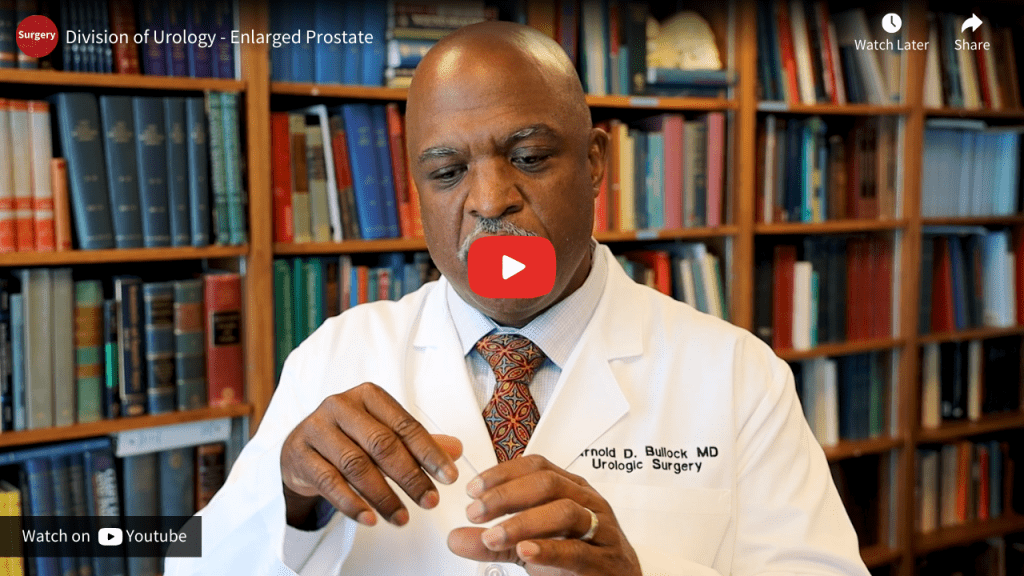
Men’s health topics are important to discuss with a doctor, but for many men it is difficult to have these conversations with their health care provider. Washington University urologic surgeons answer questions about enlarged prostate – also called benign prostatic hypertrophy (BPH) – below.
The medical term for an enlarged prostate is benign prostatic hyperplasia (BPH). An enlarged prostate is not a medical problem, it is a condition or a state of being.

An enlarged prostate means that your prostate is large in comparison to the average man’s prostate. The average prostate is 20 cc in size. Prostates over 30 cc are considered enlarged.
Just like female breasts vary in size, men have prostates of varying size.
Prostate development and growth is dependent on the presence of the androgen sex hormone dihydrotestosterone (DHT). DHT is catalyzed from testosterone, the primary male hormone.
Enlarged prostates can cause obstructive voiding symptoms. The urine flows from the bladder through the tube in the middle of the prostate, called the prostatic urethra, and then out through the penile urethra. As the prostatic urethra narrows with age, the urinary stream can be partially obstructed. Symptoms of an obstructed prostatic urethra include:
- Slow stream
- Straining to urinate
- Sense of incomplete emptying
- Urinary frequency or nocturia (getting up at night to void)
- Splayed urinary stream

There is no reason to treat the asymptomatic enlarged prostate.
Treatment is intended to improve symptoms related to prostatic narrowing. Men with normal sized prostates can also be symptomatic.
Obstructive voiding symptoms can be treated with medication, phytotherapy or surgery:
Medications – Alpha Blockers
- Alpha blockers relax the prostate and improve voiding symptoms and flow rate
- These agents work within 1 – 2 weeks and have few side effects
- Common medications include Flomax, Rapaflo, Uroxatrol, Cardura, Hytrin
Medications – 5 alpha reductase inhibitor
- These agents block the conversion of testosterone to DHT
- With a reduced DHT level, the prostatic glandular tissue shrinks and results in a wider prostatic urethra
- Medications include Finasteride and Avodart.
In addition to medications, surgical options offered by Washington University urologists include laser treatments, such as GreenLight Laser Therapy, to open the prostate, allowing patients to have better bladder habits.
A man with an enlarged prostate does not know that his prostate is large. The enlargement is detected by digital rectal examination or by imaging.
Men with voiding problems might have a normal sized, tight prostate.
Prostate size is not related to constipation or other gastrointestinal problems.
Washington University Urology can provide options and treatments for prostate enlargement. Meet our specialists below.

Arjun Sivaraman, MD
